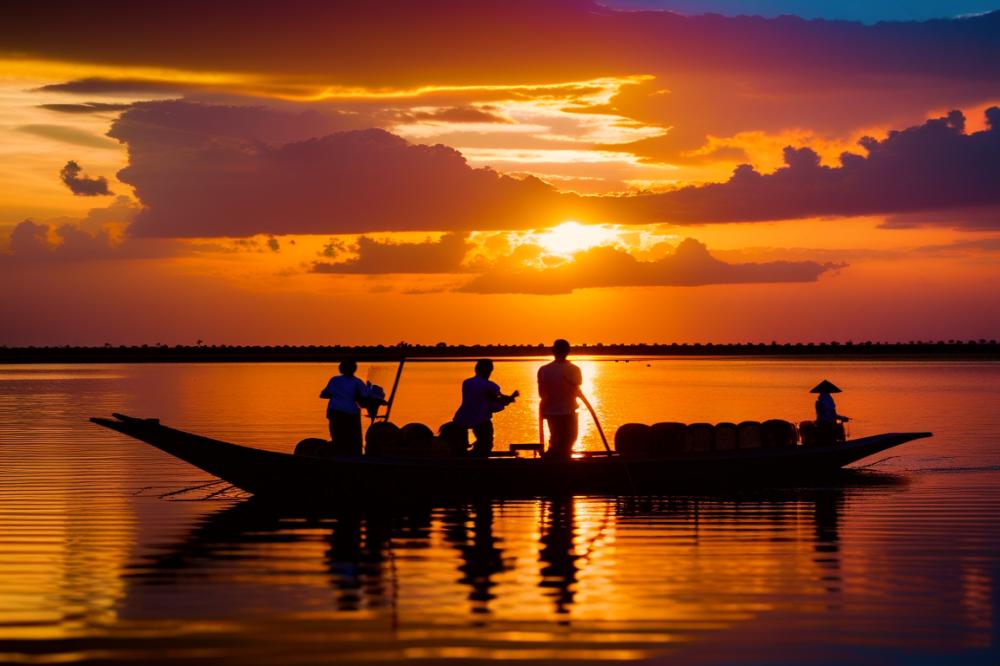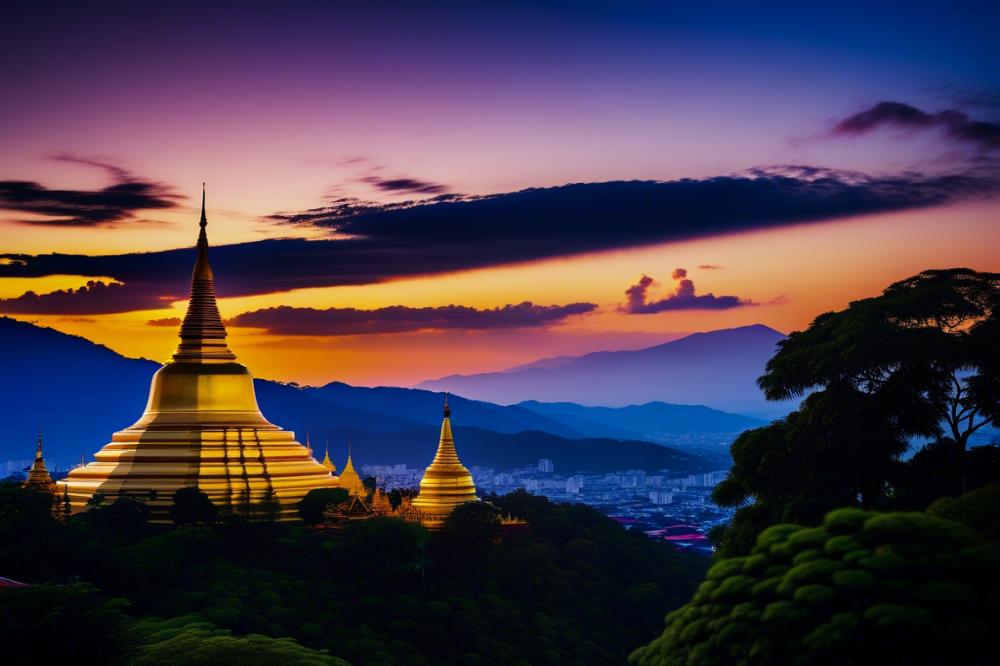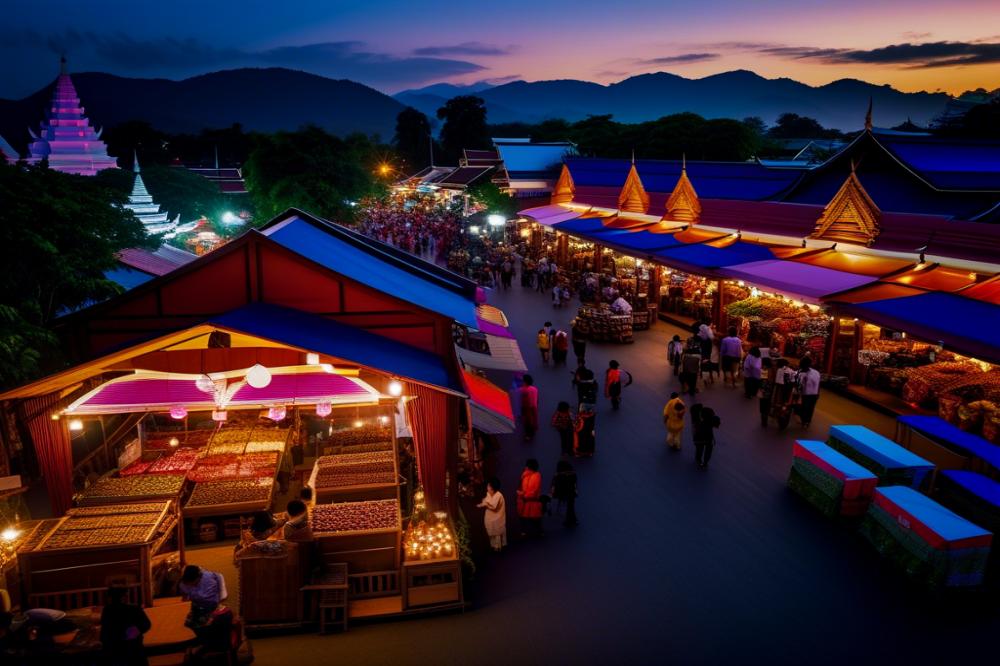A boat tour of Tonle Sap Lake’s floating villages
A boat tour across Cambodia’s Tonle Sap Lake offers travelers a glimpse into life on the water. As the largest freshwater lake in Southeast Asia, it’s home to vibrant fishing communities and a unique ecosystem. Exploring this area presents an adventure filled with nature and rich local culture.
floating villages dot the landscape, where homes are built on stilts or float directly on the lake. Life in these communities is shaped by water, as families rely on fishing and small-scale agriculture. Visiting these areas allows you to witness the daily lives of the people who call this waterway home. From local markets to schools, each stop reveals a story worth telling.
Eco-tourism plays a significant role in preserving the delicate environment of Tonle Sap Lake. Efforts to promote sustainable travel help protect both the natural surroundings and the traditions of the local communities. Tourists can engage with the environment responsibly while contributing to the livelihoods of these fishing families.
This journey through the lake is more than just sightseeing; it’s an exploration of community life that connects you with nature. Witnessing the sunsets over the water and hearing the sounds of the village create lasting memories. A boat tour of these floating villages invites you to embrace the charm and allure of Cambodia.
Tonle Sap Lake: A Unique Ecosystem

Located in Cambodia, Tonle Sap Lake is the largest freshwater body in Southeast Asia. Its geography is striking, featuring vast waters that expand during the rainy season and recede in the dry months. This phenomenon creates an incredible seasonal dynamic. The area transforms into a vast wetland, reaching a size of over 16,000 square kilometers at its peak. During the dry season, the lake contracts considerably, but its effects on the landscape are profound.
Many people come to explore the lake through a boat tour. Travelers discover how this freshwater ecosystem provides vital resources for local communities. Fisheries thrive here, making fish a staple in the diet of residents. Biodiversity is rich, hosting thousands of species, including unique fish and birds. Migratory patterns of many creatures depend on the lake’s seasonal changes.
Around the waterway, floating villages form an integral part of the local culture. Fishing communities have adapted their lifestyles to the ebb and flow of the lake. Households live on homes that navigate the water, making life revolve around fishing and trade. Boats become a primary mode of transport, rather than conventional vehicles. The adventure of daily life here showcases how humans can harmonize with nature.
Eco-tourism plays a significant role in preserving this remarkable habitat. Tourists are encouraged to engage with the environment thoughtfully. By raising awareness, visitors help maintain the delicate balance between human needs and ecological health. This contributes to sustainable practices that support both the lake’s biodiversity and the livelihoods of fishing families.
Lake experiences offer a captivating glimpse into an ecosystem unlike any other. Understanding its seasonal nature provides insight into the resilience of the communities who call this water home. Tonle Sap Lake is not just a geographical feature; it is a lifeline that nourishes the culture and economy of Cambodia.
Exploring the Floating Villages

Tonle Sap Lake is famous for its floating villages, each with its own character and charm. Among these communities, Kampong Phluk and Chong Kneas stand out. They offer remarkable insights into the life of fishing communities in Cambodia. A boat tour through these villages brings adventure and an up-close view of local culture.
Kampong Phluk is one of the largest floating villages. It features houses built on tall stilts, allowing them to rise and fall with the water levels. The architecture is practical, using bamboo and wood that withstand the elements. During the rainy season, the lake expands, submerging the lower parts of the village. This design is essential to daily life here.
Chong Kneas also showcases similar structures. However, it is known for its vibrant markets and the many tourists it attracts. Residents here rely on fishing as a primary source of food and income. Fishermen cast their nets each day to catch fish. Local women often prepare traditional dishes using their fresh catches.
Life on the water creates a unique rhythm. Children play in the lake each afternoon, splashing and swimming. They attend floating schools that adapt to the changing water levels. Fishing nets hang in homes, drying in the sun, while boats bob gently nearby. The experience connects residents to nature in ways that land-bound communities cannot understand.
Visitors often enjoy observing the local customs as they travel through the villages. Traditional celebrations, such as the Water Festival, draw large crowds. Residents perform cultural dances and music, sharing their heritage with every visitor. Eco-tourism is becoming more popular as people want to see these beautiful villages while preserving their way of life.
The floating villages illustrate resilience and adaptability. Families work together to maintain their homes on the water. This lifestyle is not just about survival; it is also about community. Each village supports its members, deepening connections. Exploring these unique places offers more than just picturesque views; it reveals a rich and vibrant culture shaped by the lake.
The Adventure of a Boat Tour

A boat tour of the floating villages offers an adventure unlike any other. Travelers can choose from various options to explore this fascinating ecosystem. Short trips provide a quick glimpse into the life along the waterway, while full-day adventures immerse visitors in the local culture.
Short excursions typically last a couple of hours. These trips often include a ride through the vibrant floating markets. Tourists can see local vendors selling fruits, vegetables, and handcrafted goods. Fishermen are frequently observed using traditional techniques to catch fish. Watching their skills in action is both educational and inspiring.
For those wanting a deeper experience, full-day tours are available. These longer adventures allow groups to connect with fishing communities more meaningfully. Travelers enjoy the beautiful scenery that surrounds the lake, from lush vegetation to the vibrant homes built on stilts. An excellent lunch often features local cuisine. Sampling dishes made with freshly caught fish is a delight.
A boat tour also provides an opportunity to learn about eco-tourism. Understanding the importance of preserving the area’s unique ecosystem becomes clear. Visitors can talk to local guides about their sustainable practices and the challenges they face. Many operators prioritize eco-friendly methods, which helps protect the natural environment.
Returning in the evening, guests might catch a breathtaking sunset over the lake. The sky transforms into a canvas of warm colors, reflecting on the peaceful water. These moments make for perfect photographs and lasting memories. Many tours include this picturesque finale, adding to the unforgettable experience.
In Cambodia, exploring the lake’s floating villages is not just a tour; it’s a cultural immersion. Every moment spent on the water offers a glimpse into the life and traditions of its inhabitants. Travelers leave with richer insights into the local culture and a deeper appreciation for this extraordinary natural habitat.
Engaging with Local Culture

Travelers on a boat tour of the floating villages have countless opportunities to engage with the local culture. One of the most memorable experiences is visiting schools. Here, children welcome visitors with bright smiles, eager to share their language and stories. Participating in traditional fishing methods offers another chance to connect. Visitors can learn how families catch fish using age-old techniques that have been passed down through generations.
The vibrant fishing communities along the waterway provide not just a glimpse into daily life but also a chance to enjoy genuine hospitality. Travelers might find themselves sharing a meal with local families, tasting dishes made from freshly caught fish. These interactions create a deeper understanding of the challenges and joys faced by these communities.
Exploring local crafts is also a rewarding experience. Artisans often showcase their work, from handwoven baskets to intricate wood carvings. Visitors can learn about the materials used and the history behind each craft. This hands-on experience fosters appreciation for the culture and skills of the Cambodian people.
Eco-tourism plays a key role in preserving the unique environment and supporting local economies. When tourists actively participate in community activities, it strengthens connections. Respectful tourism encourages visitors to value and protect the culture and nature they encounter during their adventure.
Every encounter presents an opportunity for meaningful exchanges. Observing daily life on the water, travelers gain insights into how residents adapt to their surroundings. Understanding their way of life can be transformative, leaving travelers with lasting memories of their lake experiences. Embracing these aspects of local culture enriches any journey through Cambodia, creating a shared sense of purpose and appreciation.
Sustainable Travel and Eco-Tourism
Eco-tourism plays a vital role in supporting the communities around Tonle Sap Lake. It provides a sustainable way for locals to share their culture with visitors. When you take a boat tour in Cambodia, you not only witness the local culture but also contribute to the economy. These experiences help fishing communities thrive, creating jobs and opportunities.
Responsible travel practices can significantly benefit the environment. Tourists are encouraged to respect nature during lake experiences. Simple actions, like not littering and minimizing noise, can protect the delicate ecosystem. Tour guides often promote these values, ensuring travelers understand their impact on wildlife and habitats.
Climate change poses a significant threat to the lake and its inhabitants. Wetland ecosystems are particularly vulnerable, affecting fish populations and water quality. Rising temperatures and erratic weather patterns disrupt traditional fishing practices. As a result, eco-tourism becomes even more critical. It raises awareness about these challenges while advocating for sustainable solutions.
Adventure seekers can help preserve this landscape through thoughtful travel. By engaging with local businesses, visitors keep money within the community. This helps maintain cultural heritage as well as the environment. Supporting eco-friendly practices means fewer negative effects on the area’s natural resources.
Floating villages are an integral part of life around the lake. They rely on the ecosystem for fishing and trade. Residents and visitors alike share a responsibility to protect these resources. Each tour promotes understanding of how life in these villages relies on a delicate balance with nature.
Ultimately, everyone has a role to play. Local communities count on travelers to respect their way of life. Choosing eco-friendly activities allows you to explore without harming the environment. This symbiotic relationship is essential for ensuring a prosperous future for both the lake and its people.
Embrace the Wonders of Floating Villages
Experiencing a boat tour of the floating villages offers more than just a scenic view; it opens up a window into a world that thrives on water. This journey is memorable for anyone seeking adventure in Cambodia. Visitors discover a rich tapestry of life that intertwines with nature. The vibrant colors of the houses, the laughter of children playing on wooden boats, and the serene sounds of water all leave a lasting impression.
Understanding local culture is essential when traveling. Each village tells a story, reflecting a way of life that has adapted to its surroundings for generations. Conversations with local families reveal their traditions and daily routines, making it clear that these communities are filled with resilience. Nature plays a critical role here. Sustainable travel practices are vital for maintaining this delicate ecosystem. By practicing mindfulness, travelers contribute positively to the preservation of both culture and environment.
Consider adding this extraordinary destination to your travel list. A visit can inspire you to appreciate the beauty of simplicity and the importance of community. An adventure on the lake not only enriches your experience but also creates a deeper connection with the world around you. Explore, learn, and cherish the sights and stories awaiting you in Cambodia’s floating villages.



